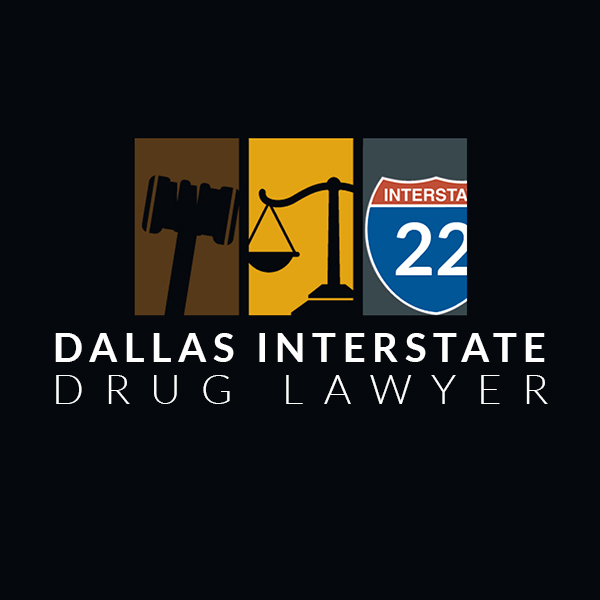Dallas drug crimes involve a particular set of offenses related to controlled substances including illegal street drugs (heroin, cocaine, ecstasy, etc.) as well as prescription drugs (Xanax, Vicodin, Oxycontin, etc.), both of which are regulated by the government. Depending on the type of drug and the nature of the offense, a person may face a variety of severe charges, such as possession versus trafficking. Penalties will range broadly as well, depending on the offense itself as well as the jurisdiction and the defendant’s criminal record, if any.
Dallas Drug Crimes: Cocaine
Cocaine refers to the powder or crystal form of the crystalline tropane alkaloid obtained from the cocoa plant. If you are in possession of even just a trace amount of cocaine, it could result in $10,000 in fines and up to 5 years in prison.
Dallas Drug Crimes: Crystal Meth
Methamphetamine is a neurotoxin and potent psychostimulant of the amphetamine class, categorized by the U.S. government as a dangerous Schedule II drug. Penalties related to crystal meth possession can result in up to $10,000 in fines and up to 5 years in a state prison.
Dallas Drug Crimes: Cultivation
Cultivation is similar to the charge of manufacturing, but instead of a synthetic chemical based process, it involves the growth and production of the plants to make these illegal substances. There must be an intent to grow and sell these products and can merge into manufacturing, distributing and selling charges.
Dallas Drug Crimes: Delivery of a Controlled Substance
You can be charged with delivery of a controlled substance not only for the actual transfer from one person to the other, but also for the attempt to do so. If the possessed amount of a controlled substance is found to be greater than what would normally be considered by the state as personal use, then the charge increases to an attempt to transfer and is punishable as an actual, completed delivery (“constructed delivery”) with much harsher sentencing.
Dallas Drug Crimes: Distribution
A person commits the crime of unlawful distribution of a controlled substance if a person furnishes, gives away, or delivers a controlled substance. Distribution can be a Class III or Class II felony depending on the type of substance involved and does carry the potential for a lengthy prison sentence.
Dallas Drug Crimes: Ecstasy
MDMA, otherwise known by its street name ecstasy, is an empathogenic drug of the amphetamine and phenethylamine class. An individual can receive is up to $25,000 in fines and up to 50 years in state prison for ecstasy related charges.
Dallas Drug Crimes: Heroin
The sale or possession of the opiate heroine is strictly prohibited, and may carry penalties of a felony charge that entail stiff prison sentences. The penalties vary depending on the amount of heroin being sold, distributed or used. Any drug crimes related to heroin can be considered federal offenses and if the individual is guilty of trafficking the drug, they can be taken to federal court.
Dallas Drug Crimes: Interstate Drug Traffic Charges
Using the interstate system, drug traffickers and Mexican cartels have imported huge amounts of illegal controlled substances across the United States. Drug trafficking is branded a felony, and carries with it hefty fines that reach $25,000, mandatory minimum sentences, and maximum sentences that can carry life in prison in certain circumstances. These factors are determined by the type of drug and the quantity seized.
Dallas Drug Crimes: Marijuana
Cannabis, commonly known as marijuana, is hallucinatory substance, whose charges for possession, cultivation, and distribution are usually considered by most people to be minor. This is a mistake, however, as possession with intent to distribute marijuana could result in up to 20 years in prison. If the individual has any previous drug criminal charges, it could result in even greater penalties.
Dallas Drug Crimes: Manufacturing
Manufacturing controlled substances, such as marijuana or methamphetamine, is the illegal act of an individual’s involvement in any step of the drug making process. Those who sell the needed precursor chemicals, specializing equipment, or offer assistance in the production of illegal drugs may be charged also.
Dallas Drug Crimes: Possession of a Controlled Substance
Willfully possessing controlled substances such as marijuana, methamphetamine, cocaine, LSD, “club drugs,” and heroin is illegal. Possession charges could also be considered for “precursor” chemicals used in drug cultivation and manufacturing, as well as certain accessories related to drug use. Drug possession laws vary according to drug type, amount, and geographic area of the offense.
Dallas Drug Crimes: Possession with Intent to Deliver
Trafficking, or the distribution of controlled substances, is often termed “possession with intent to deliver.” In order for a prosecutor to prove a case for drug trafficking or distribution, they must show beyond a reasonable doubt that the defendant manufactured, grew or obtained an illegal drug and then delivered it to another person or intended to deliver it to another person.
Dallas Drug Crimes: Prescription Drugs
These controlled substances—such as prescription narcotic painkillers, heroin, morphine, marijuana, methadone, and other highly addictive drugs—were intended to be solely regulated by the government. In the hands of drug abusers, however, they become dangerous Schedule I and Schedule II drugs. While penalties are sentenced according to the exact type of prescription drug, it is certain that authorities do not take possession or distribution lightly.
Dallas Drug Crimes: Prescription Fraud
The charge of prescription fraud consists of misrepresenting yourself to a doctor, doctor shopping, or being dishonest when obtaining a controlled substance. Prescription fraud may well be brought down on physicians who prescribe drugs without a legitimate purpose, as well. It can result in imprisonment and fines, but it depends upon exact substance that was being abused.
Dallas Drug Crimes: Sale of Drugs
The sale of drugs is commonly referred to as “drug dealing,” and is defined as the sale of a controlled substance—which may be punishable at the federal level. The conviction imposes significant consequences for anyone who violates the law on this matter, and more so as it applies to selling drugs to minors.
Dallas Drug Crimes: Trafficking
Trafficking means the distribution of illegal controlled substances across borders into another county, but can also be penalized or compounded with other charges, such as selling, transportation, and illegal importing. The punishment for drug trafficking is very severe and can vary widely depending on the type and amount of drug involved, geographic area of distribution, and whether death or injury was involved.
Dallas Drug Crimes: Transportation of a Controlled Substance
To “transport” drugs means to physically move them from one place to another, even if the distance is a short one. Illegal drugs can be transported by foot, bicycle, car, plane, or any other means. Legislature differentiates between the intent to sell or distribute, saying “moving is all that is required.” The increased penalty of transportation is intended to discourage sales and purchases.

